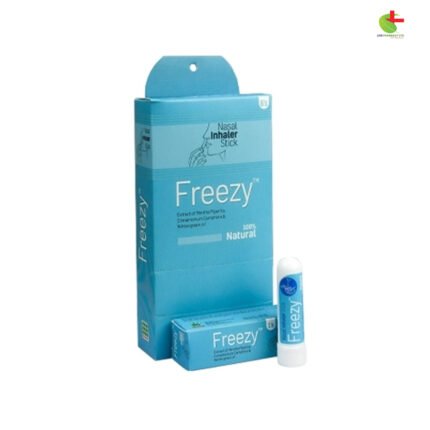Anril SR 2.6
50.00৳ Strip
- Anril SR: A trusted medication for angina pectoris prophylaxis
- Vasodilator effect on peripheral arteries and veins
- Reduces left ventricular end-diastolic pressure and systemic vascular resistance
- Tailored dosages for optimal patient response
- Reliable relief from anginal pain
 Brand
Brand
|
Square Pharmaceuticals PLC |
|---|---|
 Generics
Generics
|
Nitroglycerin |
Indications
Anril SR serves to prevent angina pectoris. However, its action onset isn’t swift enough to manage acute anginal episodes effectively.
Pharmacology
Nitroglycerin induces relaxation in vascular smooth muscle, leading to vasodilation in both peripheral arteries and veins. This dilation in veins encourages peripheral blood pooling, reducing venous return to the heart and consequently lowering left ventricular end-diastolic pressure (preload). Arterial relaxation diminishes systemic vascular resistance and arterial pressure (afterload).
Dosage & Administration
Dosage must be tailored to each patient’s needs and response, as well as the severity of anginal pain. For adults, it’s recommended to take one Nitroglycerin 2.6 mg sustained-release tablet or capsule in the morning and evening on an empty stomach, as advised by a healthcare professional.
Interactions
Anril SR’s peripheral blood vessel dilation may enhance the antihypertensive effects of vasodilators, calcium antagonists, and beta-adrenergic blockers. However, caution is warranted when combining nitrates with tricyclic antidepressants and alcohol due to potential hypertension. Concurrent use with phosphodiesterase type 5 (PDE5) inhibitors like sildenafil may result in decreased blood pressure. Aspirin may increase the hemodynamic effects of Anril SR, while nitrates may elevate dihydroergotamine’s bioavailability.
Contraindications
Nitroglycerin is not suitable for patients with known hypersensitivity to nitroglycerin or related compounds, acute myocardial infarction, severe anemia, head trauma, cerebral hemorrhage, or closed-angle glaucoma.
Side Effects
Initial treatment with Anril SR may cause headaches, which typically diminish over time. Other potential side effects include tachycardia, postural hypotension, syncope, cyanosis, and methemoglobinemia.
Pregnancy & Lactation
There’s insufficient evidence regarding the safety of nitrates during pregnancy and lactation. Therefore, it’s advisable to avoid administering nitroglycerin to pregnant or nursing women unless deemed essential by a physician.
Precautions & Warnings
Exercise caution when using Anril SR in patients prone to closed-angle glaucoma. Abrupt discontinuation of therapy may exacerbate angina symptoms, so gradual dosage reduction over several days is recommended. Monitoring of hemodynamics and clinical status is crucial when using Anril SR during the early stages of acute myocardial infarction to prevent hypotension and tachycardia.
Overdose Effects
Overdose may result in peripheral vasodilation, leading to decreased blood pressure and reflex tachycardia. In such cases, careful cardiac monitoring and supportive measures are necessary. If needed, vasopressors may be administered in life-threatening situations.
Therapeutic Class
Anril SR belongs to the class of nitrates known as coronary vasodilators.
Storage Conditions
Store Anril SR in a cool, dry place away from light and heat, and ensure it’s out of reach of children.













Reviews
There are no reviews yet.